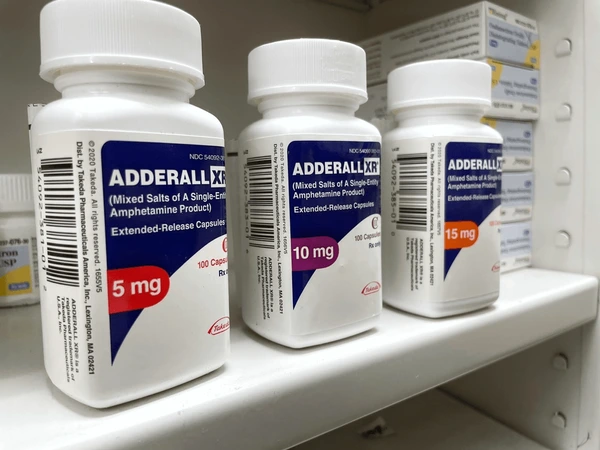Currently Empty: $0.00

Adderall Xr And Constipation, a commonly prescribed medication for Attention Deficit Hyperactivity Disorder (ADHD), is known for its efficacy in enhancing focus and reducing hyperactivity and impulsiveness. However, like many medications, it comes with a range of potential side effects, one of which is constipation. Understanding the connection between Adderall XR and constipation can help users manage this uncomfortable side effect more effectively.
What is Adderall XR?
Adderall XR (extended-release) is a stimulant medication that contains a combination of amphetamine and dextroamphetamine. These ingredients affect chemicals in the brain and nerves that contribute to hyperactivity and impulse control. The extended-release formulation allows the medication to be released gradually throughout the day, providing sustained symptom relief.
How Does Adderall XR Cause Constipation?
Constipation can occur as a side effect of Adderall XR due to several reasons:
- Decreased Appetite: Adderall XR often reduces appetite, leading to lower food intake. A decrease in food consumption can result in less fiber in the diet, which is essential for regular bowel movements.
- Dehydration: Stimulant medications like Adderall XR can lead to dehydration, as they can suppress thirst and cause the body to lose fluids more rapidly. Dehydration is a common cause of constipation, as adequate hydration is crucial for softening stools and promoting bowel movements.
- Altered Digestion: Amphetamines can affect the gastrointestinal system, slowing down the digestive process. This slowdown can lead to harder stools and difficulty in passing them.
- Sympathetic Nervous System Activation: Adderall XR stimulates the sympathetic nervous system, which can reduce the activity of the digestive system, further contributing to constipation.
Managing Constipation While Taking Adderall XR
If you are experiencing constipation as a side effect of Adderall XR, there are several strategies you can employ to alleviate this discomfort:
- Increase Fiber Intake: Incorporate more fiber-rich foods into your diet, such as fruits, vegetables, whole grains, and legumes. Fiber helps to bulk up the stool and promotes regular bowel movements.
- Stay Hydrated: Drink plenty of water throughout the day. Aim for at least eight glasses of water daily, and consider drinking even more if you are active or live in a hot climate.
- Exercise Regularly: Physical activity can stimulate intestinal function and help prevent constipation. Aim for at least 30 minutes of moderate exercise most days of the week.
- Establish a Routine: Try to go to the bathroom at the same time each day to train your body to have regular bowel movements. Allow yourself enough time and avoid rushing.
- Consider Over-the-Counter Remedies: If dietary and lifestyle changes are not enough, you might consider using over-the-counter laxatives or stool softeners. However, it’s important to use these sparingly and under the guidance of a healthcare professional.
- Talk to Your Doctor: If constipation persists, it’s crucial to consult your healthcare provider. They may adjust your dosage or suggest alternative treatments to mitigate this side effect.
Conclusion
While Adderall XR is highly effective in managing ADHD symptoms, it can lead to constipation in some individuals. By understanding the causes and implementing lifestyle changes, you can manage this side effect and continue to benefit from your medication. Always consult with your healthcare provider before making any significant changes to your diet, exercise routine, or medication regimen to ensure the best outcomes for your health.




